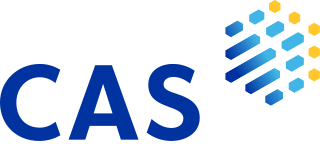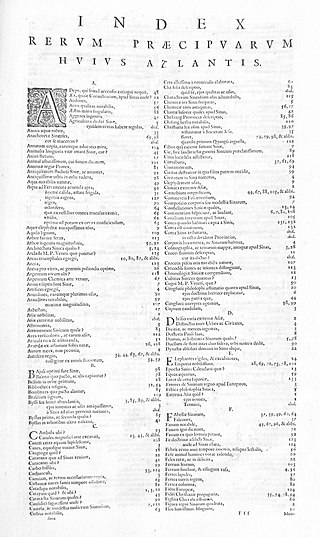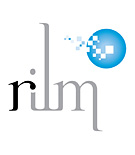Related Research Articles

Bibliography, as a discipline, is traditionally the academic study of books as physical, cultural objects; in this sense, it is also known as bibliology. English author and bibliographer John Carter describes bibliography as a word having two senses: one, a list of books for further study or of works consulted by an author ; the other one, applicable for collectors, is "the study of books as physical objects" and "the systematic description of books as objects".

This page is a glossary of library and information science.

CAS is a division of the American Chemical Society. It is a source of chemical information. CAS is located in Columbus, Ohio, United States.
PsycINFO is a database of abstracts of literature in the field of psychology. It is produced by the American Psychological Association and distributed on the association's APA PsycNET and through third-party vendors. It is the electronic version of the now-ceased Psychological Abstracts. In 2000, it absorbed PsycLIT which had been published on CD-ROM.
A book review is a form of literary criticism in which a book is merely described or analyzed based on content, style, and merit. A book review may be a primary source, opinion piece, summary review or scholarly review. Books can be reviewed for printed periodicals, magazines and newspapers, as school work, or for book websites on the Internet. A book review's length may vary from a single paragraph to a substantial essay. Such a review may evaluate the book on the basis of personal taste. Reviewers may use the occasion of a book review for an extended essay that can be closely or loosely related to the subject of the book, or to promulgate their own ideas on the topic of a fiction or non-fiction work.

An index is a list of words or phrases ('headings') and associated pointers ('locators') to where useful material relating to that heading can be found in a document or collection of documents. Examples are an index in the back matter of a book and an index that serves as a library catalog. An index differs from a word index, or concordance, in focusing on the subject of the text rather than the exact words in a text, and it differs from a table of contents because the index is ordered by subject, regardless of whether it is early or late in the book, while the listed items in a table of contents is placed in the same order as the book.
Document classification or document categorization is a problem in library science, information science and computer science. The task is to assign a document to one or more classes or categories. This may be done "manually" or algorithmically. The intellectual classification of documents has mostly been the province of library science, while the algorithmic classification of documents is mainly in information science and computer science. The problems are overlapping, however, and there is therefore interdisciplinary research on document classification.
Controlled vocabularies provide a way to organize knowledge for subsequent retrieval. They are used in subject indexing schemes, subject headings, thesauri, taxonomies and other knowledge organization systems. Controlled vocabulary schemes mandate the use of predefined, preferred terms that have been preselected by the designers of the schemes, in contrast to natural language vocabularies, which have no such restriction.

In library and information science, cataloging (US) or cataloguing (UK) is the process of creating metadata representing information resources, such as books, sound recordings, moving images, etc. Cataloging provides information such as author's names, titles, and subject terms that describe resources, typically through the creation of bibliographic records. The records serve as surrogates for the stored information resources. Since the 1970s these metadata are in machine-readable form and are indexed by information retrieval tools, such as bibliographic databases or search engines. While typically the cataloging process results in the production of library catalogs, it also produces other types of discovery tools for documents and collections.
A bibliographic database is a database of bibliographic records, an organized digital collection of references to published literature, including journal and newspaper articles, conference proceedings, reports, government and legal publications, patents, books, etc. In contrast to library catalogue entries, a large proportion of the bibliographic records in bibliographic databases describe articles, conference papers, etc., rather than complete monographs, and they generally contain very rich subject descriptions in the form of keywords, subject classification terms, or abstracts.

Library and information science(s) or studies (LIS) is an interdisciplinary field of study that deals generally with organization, access, collection, and protection/regulation of information, whether in physical or digital forms.

Répertoire International de Littérature Musicale, commonly known by its acronym RILM, is a nonprofit organization that offers digital collections and advanced tools for locating research on all topics related to music. Its mission is "to make this knowledge accessible to research and performance communities worldwide….to include the music scholarship of all countries, in all languages, and across all disciplinary and cultural boundaries, thereby fostering research in the arts, humanities, sciences, and social sciences." Central to RILM's work and mission is the international bibliography of scholarship relating to all facets of music research.
CODEN – according to ASTM standard E250 – is a six-character, alphanumeric bibliographic code that provides concise, unique and unambiguous identification of the titles of periodicals and non-serial publications from all subject areas.
In information retrieval, an index term is a term that captures the essence of the topic of a document. Index terms make up a controlled vocabulary for use in bibliographic records. They are an integral part of bibliographic control, which is the function by which libraries collect, organize and disseminate documents. They are used as keywords to retrieve documents in an information system, for instance, a catalog or a search engine. A popular form of keywords on the web are tags, which are directly visible and can be assigned by non-experts. Index terms can consist of a word, phrase, or alphanumerical term. They are created by analyzing the document either manually with subject indexing or automatically with automatic indexing or more sophisticated methods of keyword extraction. Index terms can either come from a controlled vocabulary or be freely assigned.
Inspec is a major indexing database of scientific and technical literature, published by the Institution of Engineering and Technology (IET), and formerly by the Institution of Electrical Engineers (IEE), one of the IET's forerunners.
Subject indexing is the act of describing or classifying a document by index terms, keywords, or other symbols in order to indicate what different documents are about, to summarize their contents or to increase findability. In other words, it is about identifying and describing the subject of documents. Indexes are constructed, separately, on three distinct levels: terms in a document such as a book; objects in a collection such as a library; and documents within a field of knowledge.
Music librarianship is the area of librarianship that pertains to music collections and their development, cataloging, preservation and maintenance, as well as reference issues connected with musical works and music literature. Music librarians usually have degrees in both music and librarianship. Music librarians deal with standard librarianship duties such as cataloging and reference, but the addition of music scores and recordings to collections complicates these tasks. Therefore, music librarians generally read music and have at least a basic understanding of both music theory and music history to aid in their duties.
A bibliographic index is a bibliography intended to help find a publication. Citations are usually listed by author and subject in separate sections, or in a single alphabetical sequence under a system of authorized headings collectively known as controlled vocabulary, developed over time by the indexing service. Indexes of this kind are issued in print periodical form, online, or both. Since the 1970s they are typically generated as output from bibliographic databases.
In library and information science documents are classified and searched by subject – as well as by other attributes such as author, genre and document type. This makes "subject" a fundamental term in this field. Library and information specialists assign subject labels to documents to make them findable. There are many ways to do this and in general there is not always consensus about which subject should be assigned to a given document. To optimize subject indexing and searching, we need to have a deeper understanding of what a subject is. The question: "what is to be understood by the statement 'document A belongs to subject category X'?" has been debated in the field for more than 100 years

Documentation science is the study of the recording and retrieval of information. Documentation science gradually developed into the broader field of information science.
References
- ↑ Manzer, B. M. (1977). The Abstract Journal, 1790-1920. Origin, Development and Diffusion. Metuchen, N.J.: The Scarecrow Press.
- ↑ Klempner, Irving M. (1968). Diffusion of abstracting and indexing services for government-sponsored research. Metuchen, N.J. Scarecrow Press.
- ↑ Lancaster, F. W. (1991/1998/2003). Indexing and abstracting in theory and practice. London: Library Association. (1st ed. 1991; 2nd ed. 1998; 3rd. ed. 2003).